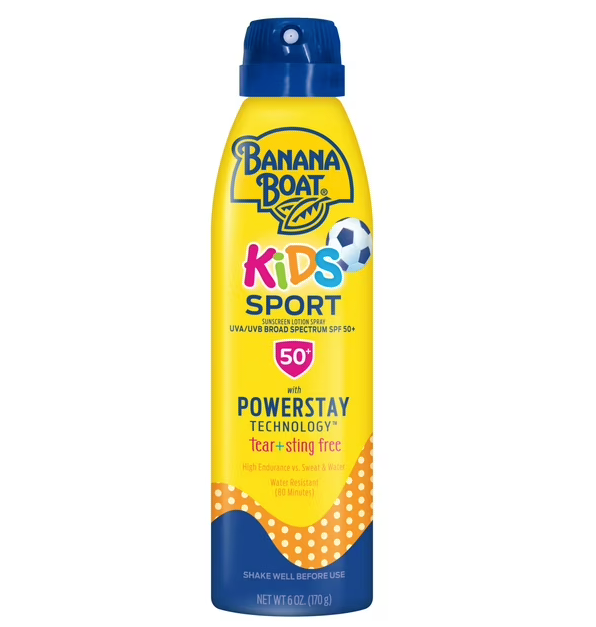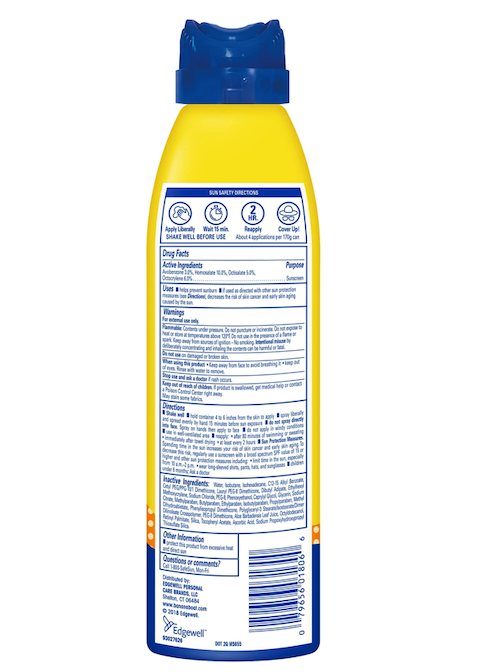What Are the Common Ingredients in Sunscreen?
Sunscreens are typically made up of two main categories of ingredients: active ingredients, which provide sun protection, and inactive ingredients, which contribute to the product’s feel, appearance, and shelf life.
Common Active Ingredients
These ingredients either physically block or chemically absorb UV rays:
Common Inactive Ingredients
These don’t provide UV protection but play important supporting roles:
- Emollients (e.g., glycerin, shea butter): hydrate and soften skin
- Preservatives (e.g., phenoxyethanol, parabens): prevent microbial growth
- Fragrances: enhance the scent (but may cause irritation in sensitive skin)
- Stabilizers and solvents: improve product texture and consistency
What Are These Ingredients For?
Each active ingredient plays a specific role in blocking UV rays:
Mineral (Physical) Filters
Zinc Oxide (zink OK-side)
- What it does: Reflects UVA and UVB rays
- Pros: Broad-spectrum, gentle, non-irritating
- Skin type: Great for sensitive or acne-prone skin
- Rating: ✅ Excellent for skin
Titanium Dioxide (tie-TAY-nee-um dye-OX-ide)
- What it does: Blocks UVB and short-wave UVA
- Pros: Less irritating, commonly used in baby sunscreens
- Con: May leave a white cast on darker skin tones
- Rating: ✅ Safe and effective
Chemical (Organic) Filters
Avobenzone (ah-voh-BEN-zone)
- What it does: Absorbs UVA rays
- Con: Can degrade in sunlight unless stabilized
- Rating: ✅ Safe when used with stabilizers like octocrylene
Octisalate (ok-ti-SAY-late)
- What it does: Absorbs UVB rays and helps stabilize avobenzone
- Pros: Lightweight and water-resistant
- Rating: ✅ Low irritation risk
Octocrylene (ok-toh-KRY-leen)
- What it does: Absorbs UVB and some UVA rays
- Con: May cause allergic reactions in sensitive skin
- Rating: ⚠️ Generally safe, but can be irritating
Oxybenzone (ok-see-BEN-zone)
- What it does: Absorbs UVB and UVA
- Controversy: Linked to hormone disruption in some lab studies; environmental concerns due to coral reef damage
- Rating: ⚠️ Effective but increasingly avoided
Are These Ingredients Good or Bad for Your Skin?
The answer depends on your skin type, personal sensitivities, and environmental values:
| Ingredient | Safe for Most? | Sensitive Skin? | Reef-Safe? | Comments |
|---|---|---|---|---|
| Zinc Oxide | ✅ Yes | ✅ Yes | ✅ Yes | Ideal for daily use |
| Titanium Dioxide | ✅ Yes | ✅ Yes | ✅ Yes | Good for kids, minimal irritation |
| Avobenzone | ✅ Yes | ⚠️ Sometimes | ⚠️ No | Effective but needs stabilizers |
| Octisalate | ✅ Yes | ✅ Yes | ⚠️ No | Often used to stabilize others |
| Octocrylene | ✅ Yes | ⚠️ Sometimes | ⚠️ No | Can cause reactions in some |
| Oxybenzone | ⚠️ Mixed | ❌ Often not | ❌ No | Avoid if concerned about hormones or reefs |
Final Thoughts: Should You Be Concerned?
For most people, the benefits of sunscreen far outweigh the risks. UV radiation is a leading cause of skin aging and skin cancer, and using sunscreen regularly is a proven way to protect your skin.
If you have sensitive skin, consider sticking to mineral-based sunscreens. If you’re eco-conscious, look for reef-safe labels, which often exclude oxybenzone and octinoxate.



